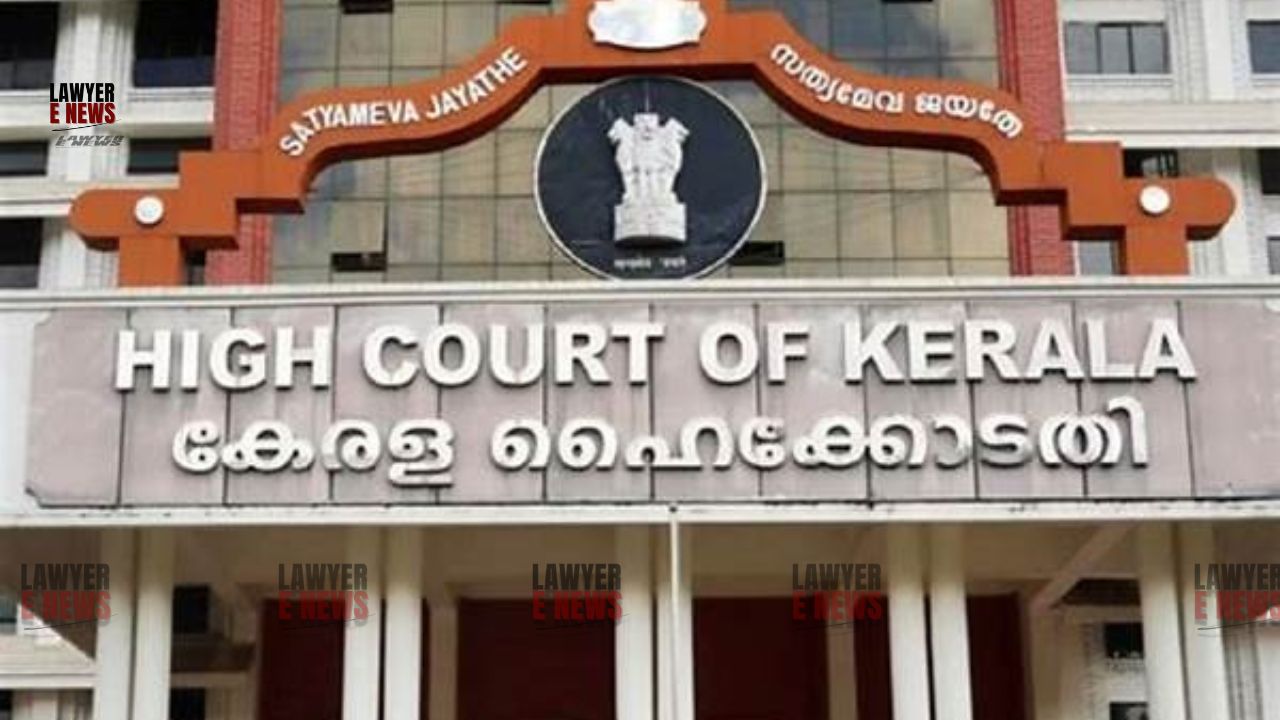-
by Admin
15 February 2026 5:35 AM



High Court Upholds Lower Courts' Findings, Dismisses Appeal in Pathway Dispute Against Government School
The Kerala High Court has dismissed an appeal in a contentious easement dispute, upholding the decisions of both the trial court and the First Appellate Court. The judgment, delivered by Justice T.R. Ravi, reaffirmed the findings that the plaintiff failed to establish a prescriptive easement over the pathway in question. The decision underscores the stringent requirements for claiming easement rights and the importance of clear and consistent evidence.
The plaintiff, P.K. Omanakuttan, sought a permanent prohibitory injunction against the obstruction of a pathway he claimed to use as an easement by prescription. According to Omanakuttan, the pathway, situated on the property of the Government C.Y.M.A U.P School, provided access to a public road. The plaintiff alleged that the school authorities were obstructing his use of this pathway.
The trial court dismissed the suit on grounds that the plaintiff failed to establish the claimed easement and had not issued a mandatory notice under Section 80 of the Code of Civil Procedure before filing the suit. The First Appellate Court subsequently upheld this dismissal, leading to the plaintiff’s regular second appeal to the High Court.
Justice T.R. Ravi noted that both the trial court and the First Appellate Court meticulously examined the evidence and found it insufficient to establish the plaintiff’s right to a prescriptive easement. "The determination regarding the existence of a way as described in the plaint is a pure question of fact," the court observed, emphasizing that the plaintiff needed to demonstrate uninterrupted and unchallenged use of the pathway for a continuous period of 20 years.
The Advocate Commissioner’s report, which noted the presence of a pathway, did not corroborate the plaintiff’s claims regarding the specific dimensions and characteristics of the pathway. The report failed to identify the pathway as per the plaint schedule, lacking consistency in the width and length of the way described by the plaintiff.
The court found that the use of the pathway by the plaintiff was at best permissive, as indicated by the locked gate of the school’s compound, which was accessible only during school hours. "Such a permissive user cannot ripen into a right of prescriptive easement," the judgment stated. Testimonies from witnesses and the plaintiff himself suggested that any access granted was temporary and conditional, not establishing a legal right of way.
In reaffirming the lower courts' rulings, Justice T.R. Ravi emphasized the necessity of clear and unequivocal evidence for establishing easement rights. The court concluded that the plaintiff’s evidence was inconsistent and did not satisfy the legal requirements for a prescriptive easement. The absence of substantial questions of law further justified the dismissal of the appeal.
The High Court’s decision highlights the rigorous standards required to substantiate claims of easement by prescription. By upholding the findings of the lower courts, the judgment reinforces the principle that permissive use cannot establish legal easement rights. This ruling is expected to influence future cases involving easement disputes, emphasizing the need for clear, consistent, and unequivocal evidence.
Date of Decision: May 14, 2024
